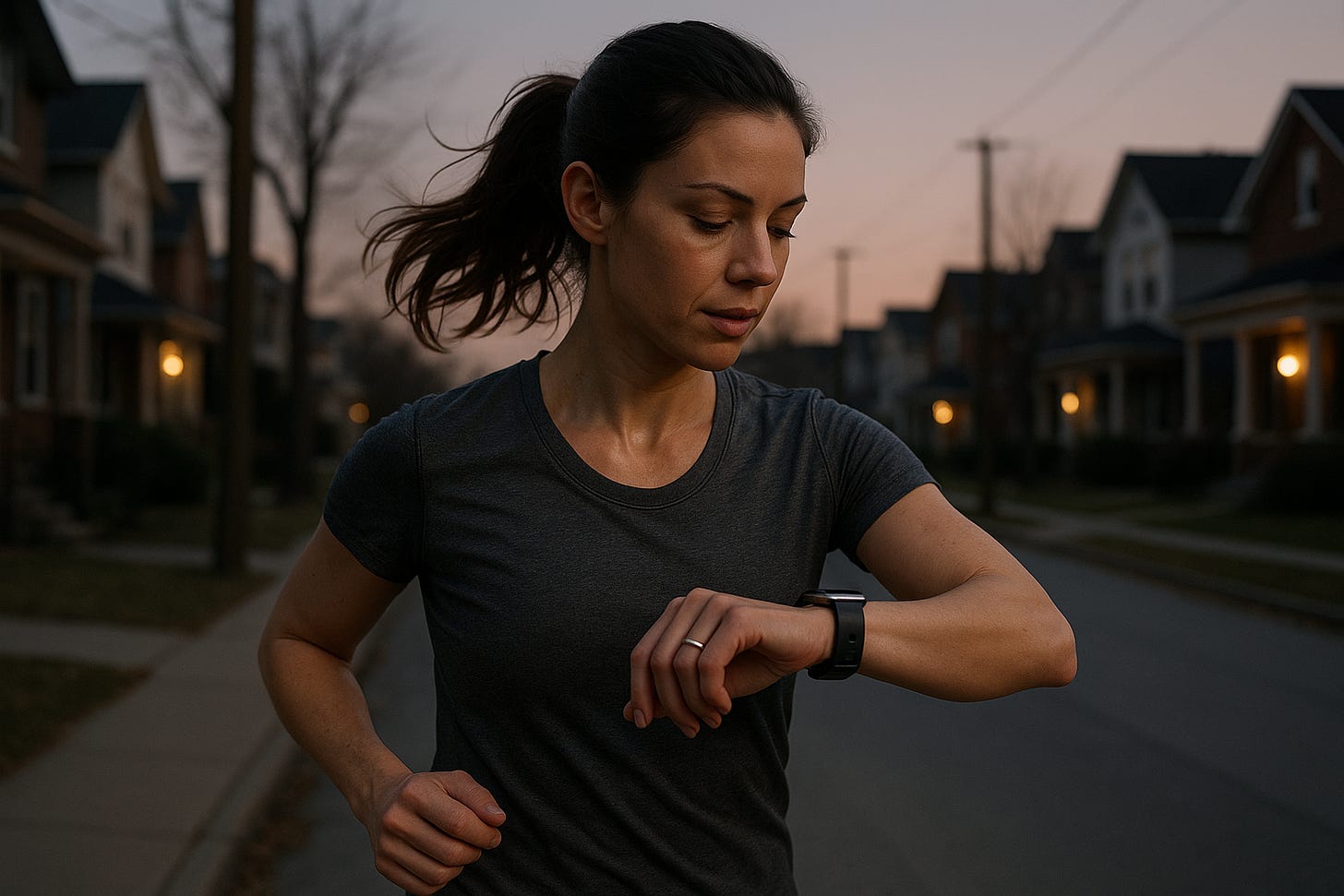Your Body Knows Something Your Smartwatch Doesn't
The missing piece of self-awareness that no algorithm can track
I often find myself thinking about the gap between what we can measure and what we can only feel. In my work—and honestly, in most of modern life—numbers rule everything. We trust data because it feels objective, reliable, real. Heart rates, engagement metrics, conversion rates, A/B tests, OKRs. I genuinely love this stuff.
There's something undeniably satisfying about tracking our personal metrics—watching fitness streaks climb, checking sleep scores on our Apple Watches, hearing that familiar ping when a goal is met. But along with the gratification comes a subtle, persistent stress that can be hard to shake.
Here's the thing I keep coming back to:
The more we quantify ourselves, the easier it becomes to mistake our data for our truth. And that's exactly where we start losing ourselves.
Because there's a part of me—of all of us—that simply can't be tracked. A part that doesn't show up in any dashboard or biometric reading. A part that stubbornly resists being turned i…




